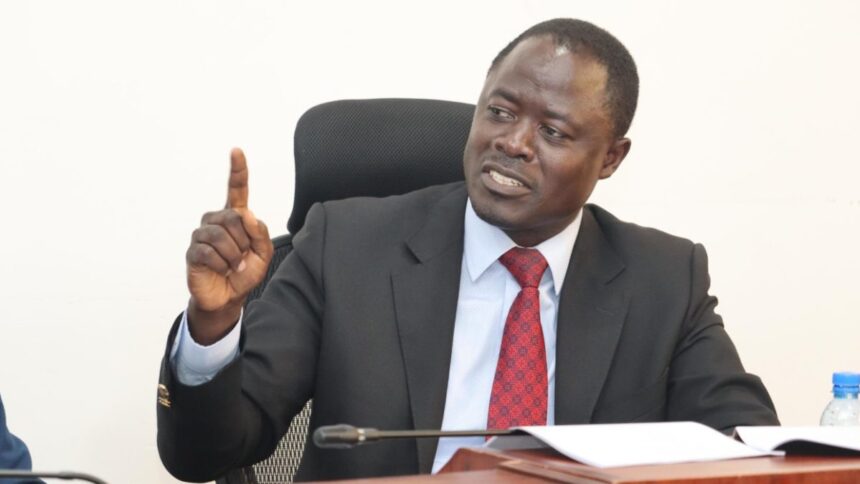Homa Bay Town Member of Parliament (MP) Peter Kaluma has defended provisions in the Assisted Reproductive Technology (ART) Bill 2022, saying the law will outlaw commercial surrogacy and bar surrogate mothers from claiming payment, even if they endure pain or die during the process.
Speaking during an interview at a local TV station on Wednesday, November 13, 2025, Kaluma said the bill was carefully crafted after considering both moral and religious objections to surrogacy and assisted reproduction.
“All religions, including Islam, Christianity, and Buddhism, are opposed to surrogacy or artificial reproduction because, to them, God ordains creation. Those are the things we had to think through when dealing with reality on the ground,” he explained.
Kaluma emphasised that the bill seeks to protect the sanctity of human life and family by eliminating what he termed the commercialisation of reproduction.
“We are saying no to commercial surrogacy. If you agree to carry an embryo and bring it to term, know that whether you die in the process or suffer pain, there will be no pay,” he stated.
According to Kaluma, the law will also prevent surrogate mothers from seeking compensation through the courts, arguing that carrying a child for another person should be viewed as a voluntary and moral act, not a business transaction.
“By this law, we have denied any person who agrees to carry a child for another the right of claim before a court of law. If the other person decides to give you something, well and good, but it won’t be enforceable,” he added.
The MP further noted that the bill imposes strict eligibility requirements on intended parents and surrogate mothers. Among them is an age limit that disqualifies women aged 55 and above from becoming intended parents.
“We are saying when you beget a child, even through another person, you must have a lifetime to bring up this child.”
The Assisted Reproductive Technology (ART) Bill 2022
His remarks come a day after the National Assembly passed the bill, marking a historic step in regulating fertility treatment, surrogacy, and reproductive health in Kenya.
The bill establishes a legal framework for assisted reproductive services, safeguards the rights of parents, surrogates, and children, and outlaws exploitative commercial surrogacy.

On Tuesday, November 11, 2025, during the Third Reading of the Bill, Speaker Moses Wetang’ula hailed Members of Parliament for concluding what he described as “a long and protracted process”, commending them for enacting a law that is both morally grounded and culturally sensitive.
“Thank you, Honourable Members, for finally bringing to an end this long, protracted process,” he said, lauding Suba North MP Millie Odhiambo-Mabona for refining the legislation.
“Honourable Millie, you should also thank your colleagues for tremendous industry in making your Bill have a moral colour and make it applicable to our country, without giving a window to foreigners to come in and do things that are unacceptable to us,” the House Speaker added.
Wetang’ula praised Odhiambo for her courage in championing the Bill, saying she had given a human face to an issue often shrouded in stigma.
“Very few people own up to their situation and do what you have done. The majority live in denial,” he said, quoting Jamaican-American poet Roy “Gramps” Morgan: “Heaven has a place for people like you.”
The Bill provides a regulatory framework for fertility treatments such as in vitro fertilisation (IVF), intrauterine insemination, gamete and embryo donation, and surrogacy. It ensures that all Kenyans, regardless of gender or marital status, can access reproductive technology safely and ethically.
It also establishes an Assisted Reproductive Technology Committee under the Kenya Medical Practitioners and Dentists Council (KMPDC) to license clinics and experts, regulate practice, and maintain a confidential national register of donors, embryos, and children conceived through assisted methods.



